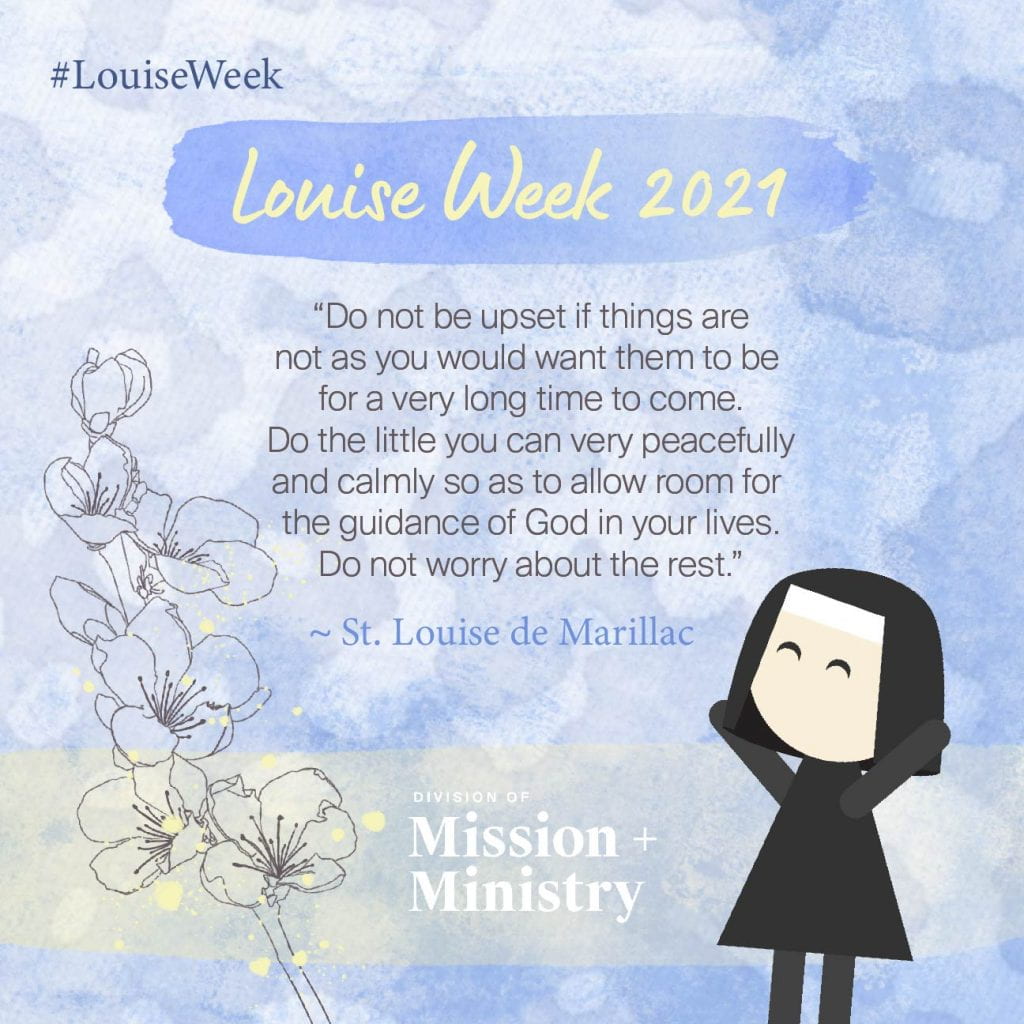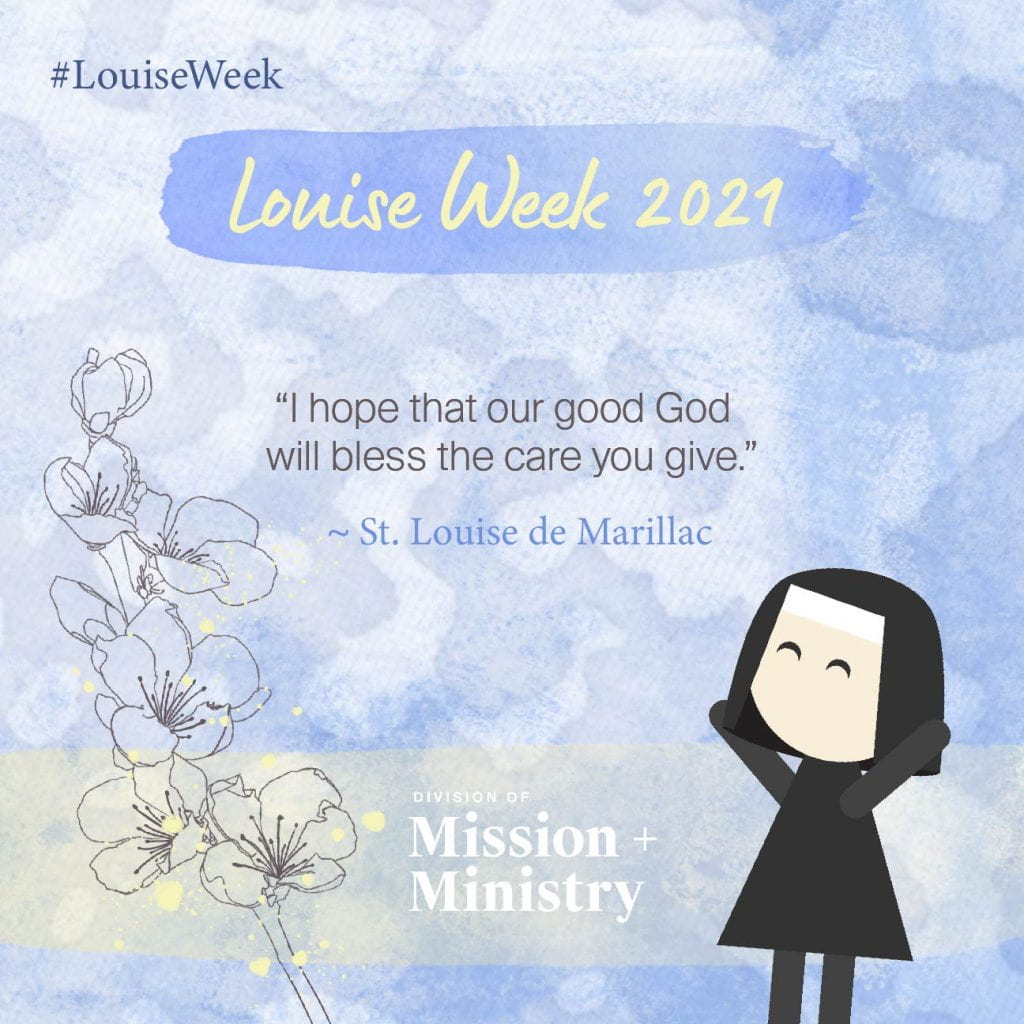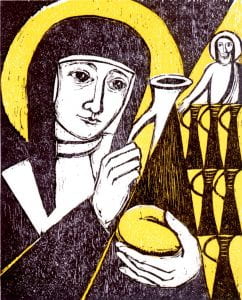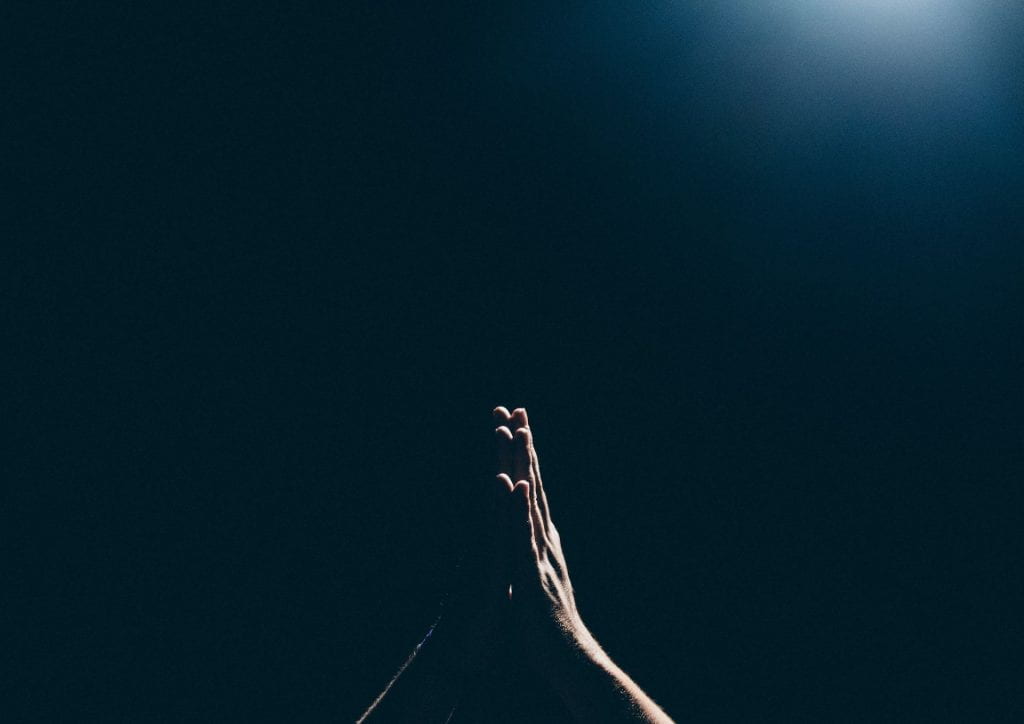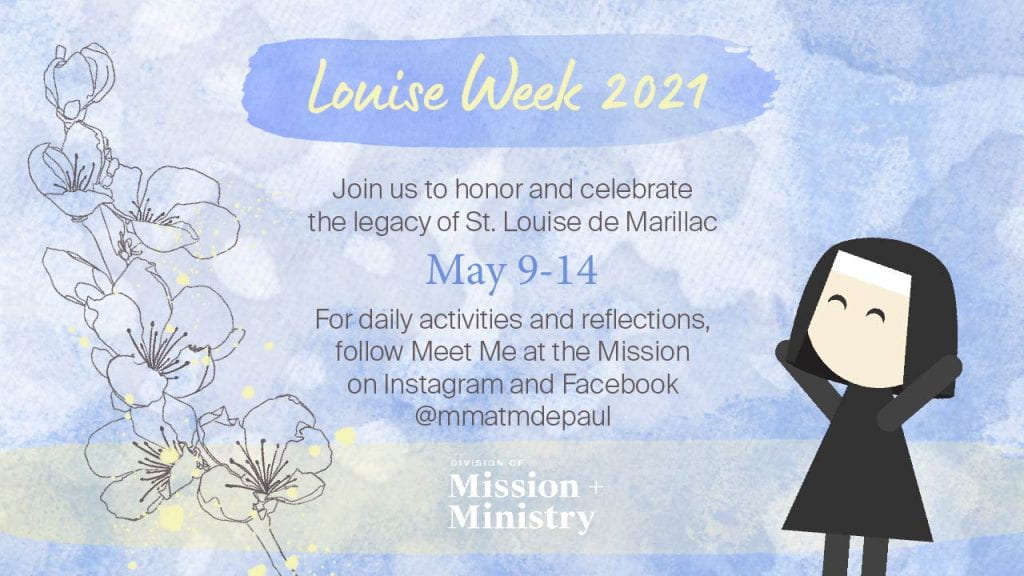If you’re anything like me, this question will send you into an existential tailspin as you try to reconcile who you are right now with the image of who you want to become. The funny thing about life, though, is that no one tells you how tough things will feel when you don’t end up at a dream job or what to do when you don’t fulfill the image of who you thought you’d be. It can all feel like a maze as you try to sort out the best direction for your life. Believe it or not, this is the same labyrinth that Louise de Marillac found herself in too.
Louise is the saint of social work and her story tends to get wrapped up in a neat bow: she was a widow who found her sense of purpose by working alongside Vincent de Paul to co-found the Daughters of Charity. Her legacy lives on today and she’s admired for her persistence and commitment to serving others, but the truth of Louise’s story is that she struggled, hard, facing questions about purpose and self-doubt. In fact, when Louise was a young woman one rejection shaped the entire course of her life. Louise had her path and her plans set; she was going to finish her schooling and join a convent. It was, for all intents and purposes, her dream job. But once she got to the convent, she was turned away, and we have good reason to believe that she was discriminated against because she was born out of wedlock. This rejection set the ball rolling in the opposite direction of what Louise had hoped. Instead of becoming a nun, her only option was to get married and begin her life as a wife and mother.
So, that’s what she did. Soon enough, the challenges of motherhood and being a wife to an ailing husband began to add up, and Louise was at her breaking point. What’s really interesting, though, is that the most pivotal moment of her life was her breaking point. Just as Louise was at her wits’ end struggling to find a way to move forward with her life, she received a revelation within the hallowed walls of the Church of St. Nicolas de Champs on the feast of Pentecost. Overwhelmed with frustration, Louise prayed for a sign, any sign, that could give her a shot at a life of fulfillment, service, and purpose. She sat there and pleaded to God for guidance. Just when she thought all was lost, He answered her prayer. She envisioned a life in which she saw herself serving the poor and living in community with sisters. This flicker of hope became her “lumière”—her guiding light.
As she sat inside the church in Paris, her doubts became quieter. Louise was to stay married and await her chance to take vows of poverty. Little did she know that her lumière was foreshadowing a future as a Daughter of Charity. Louise saw an opportunity, and she was going to make it manifest if it was the last thing she did. Sometimes, all you need is permission to dream up a new life, filled with opportunities and invitations to take matters into your own hands, and this was Louise’s.
Louise’s story and her lumière moment remind me that we need to trust the timing of our lives and embrace the unexpected pivots. Louise’s lumière gave her just enough hope to keep going—to keep envisioning a new version of the woman she dreamed of becoming. She prayed and meditated on this vision and with hard work and patience, she manifested a life better than the one she had dreamed of as a young woman.
Sometimes, you just have to throw out the original plan because what awaits you is bigger than you could have possibly planned for. I think a lot about Louise’s life path and what might’ve happened had she been accepted into that convent on her first try. She probably would’ve lived a quiet, pious life cloistered in the convent. She probably would’ve found her way, but Louise was meant to stand out, and although it made her life tougher, it was the fact that she didn’t fit the mold that made her so extraordinary. In the end, what made the Daughters of Charity remarkable was that they didn’t live a cloistered life. They preached, “The streets are our chapel,” and it is that very philosophy that helped lay the groundwork for a lot of modern-day social work in American society. It’s because Louise was able to meet people where they were that she revolutionized the way that we form each other through service and community.
I can’t help but think that life is less about the plans we make and more about saying yes to the things we love and promising ourselves to find a way to persist when we’re forced to pivot. Louise did and so can we. It wasn’t easy, but at her core she knew she had this desire to serve and to contribute to something bigger than herself. So, she followed those instincts, and she kept saying yes to the opportunities that let her live out bits and pieces of her lifelong dream until finally, she was living out that dream in full swing. Louise didn’t leave that church and instantly become the servant leader, girl boss she envisioned in her lumière. But she did walk away with some hope and the belief that she’d one day get to where she wanted to be. Until then, she had to inch herself toward that goal in any way that she could. She didn’t give up in the face of rejection and what felt like a dead end in life.
It’s so easy to look at our lives or career paths that didn’t work out and think we’ve failed and that we’ll never rebound from a mistake, but Louise and I are here to tell you to keep going, keep dreaming, keep fighting for the person you hope to become one day because this is a fight that is always worth it.
1 L.519, To Sister Anne Hardemont, (1658), Spiritual Writings of Louise de Marillac, 614-615.
Written by: Gracie Covarrubios, Admission Counselor, Office of Undergraduate Admissions
